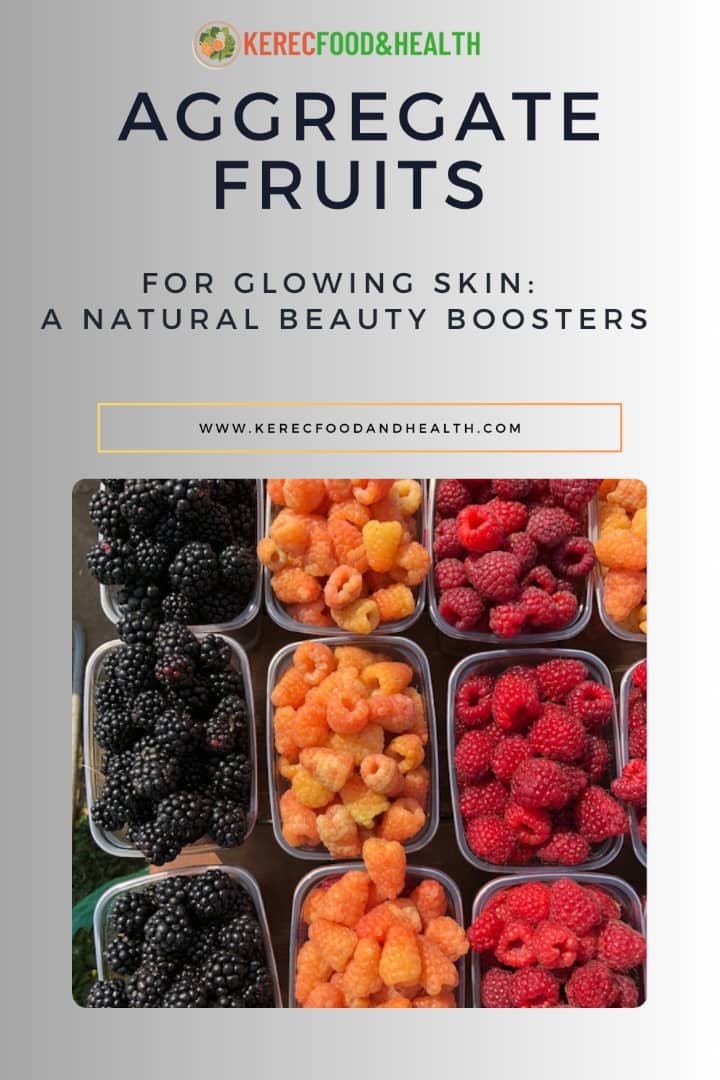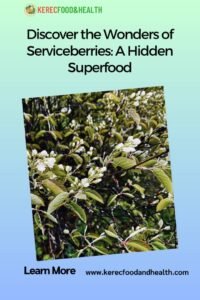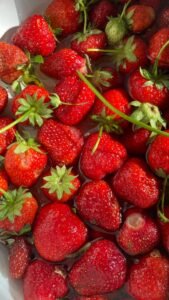If you’re after a natural way to keep your skin radiant, you may be overlooking one of nature’s best-kept secrets: aggregate fruits. Aggregate fruits—like strawberries, blackberries, and raspberries—not only add a burst of flavor to your diet but also bring a wealth of benefits to your skin. These fruits are loaded with vitamins, antioxidants, and hydration-boosting properties that promote clear, glowing skin from the inside out. Let’s take a closer look at why these tiny fruits pack such a big punch for beauty.
What Are Aggregate Fruits?
First, let’s break down what we mean by “aggregate fruits.” Unlike simple fruits like apples or peaches, aggregate fruits form from multiple ovaries in a single flower, creating those little clusters of juicy “mini fruits.” Each raspberry, for example, is made up of tiny drupelets that hold the seeds and a load of nutrients. This unique structure isn’t just fascinating; it also gives aggregate fruits a potent punch of skin-friendly compounds.
Why Aggregate Fruits Are a Skin’s Best Friend
When it comes to skincare, aggregate fruits are beauty superstars. Their benefits come from an array of vitamins, minerals, and antioxidants that help combat common skin issues and promote a glowing, even complexion. Here’s a closer look at the skin benefits of these little beauties:
1. High in Antioxidants
Aggregate fruits are antioxidant powerhouses. Antioxidants, particularly vitamin C and anthocyanins, combat free radicals—unstable molecules that can damage skin cells and accelerate aging. Research shows that consuming foods high in antioxidants may protect the skin from oxidative stress, which is linked to wrinkles, discoloration, and dullness. Blackberries, for instance, are rich in vitamin C, which plays a key role in skin repair and maintaining a radiant complexion. By snacking on these fruits, you’re feeding your skin what it needs to fight off damage and stay youthful.
2. Promotes Collagen Production
Collagen is a protein that keeps skin firm, smooth, and resilient. As we age, collagen production naturally declines, but vitamin C—a prominent nutrient in aggregate fruits—helps stimulate collagen synthesis. Strawberries, which are especially high in vitamin C, support collagen production and can improve skin elasticity over time, making them a valuable addition to a beauty-conscious diet.
3. Natural Anti-Inflammatory Properties
Aggregate fruits are rich in polyphenols, which have strong anti-inflammatory effects. Inflammation is often behind common skin issues like acne, redness, and puffiness. Studies have shown that the antioxidants and phytochemicals in berries can reduce inflammation and protect skin cells from damage. Raspberries, for example, contain ellagic acid, a compound known for its anti-inflammatory and UV-protective properties, making them a great choice for soothing sensitive skin.
4. Hydration for a Dewy Complexion
Hydrated skin is healthier skin, and aggregate fruits help keep your skin hydrated. These fruits contain a high percentage of water, which naturally contributes to your daily hydration goals. Proper hydration plumps up skin cells, reducing the appearance of fine lines and giving skin a smoother, more dewy look.
5. Loaded with Fiber for Digestive Health
Aggregate fruits are high in fiber, which promotes healthy digestion and a balanced gut. Skin health is closely tied to digestive health, as poor digestion can lead to toxin buildup that sometimes manifests as dull or acne-prone skin. The fiber in fruits like blackberries and raspberries helps cleanse the digestive tract, ultimately contributing to clearer skin.
Best Aggregate Fruits to Add to Your Beauty Routine
Now that we know why aggregate fruits are a beauty essential, let’s explore the top picks for glowing skin.
Strawberries: With high levels of vitamin C and ellagic acid, strawberries brighten the skin and help protect it from UV damage. Some studies suggest that ellagic acid can also reduce hyperpigmentation, making strawberries an excellent choice for those aiming for a more even skin tone.
Blackberries: Packed with vitamins A and C, blackberries are anti-aging powerhouses that protect against environmental stressors. Their high antioxidant content also makes them effective in reducing the appearance of fine lines and wrinkles.
Raspberries: Known for their anti-inflammatory properties, raspberries are perfect for those with sensitive or irritated skin. They help reduce redness and support skin’s natural healing processes, giving you a smoother complexion over time.
Easy Ways to Use Aggregate Fruits in Your Skincare Routine
Adding aggregate fruits to your skincare doesn’t just have to involve eating them. Here are a few easy DIY beauty treatments to try at home:
1. Strawberry Face Mask: Mash a few strawberries and mix them with a spoonful of honey for an easy, natural mask. Leave it on for 10–15 minutes before rinsing with warm water. This will gently exfoliate and brighten your skin.
2. Blackberry Toner: Crush a handful of blackberries and strain the juice. Mix it with an equal part of water, and apply it with a cotton ball as a natural toner. It’s refreshing and packed with antioxidants.
3. Raspberry Sugar Scrub: Blend raspberries with a little bit of sugar and coconut oil to create a gentle exfoliating scrub. Use it once or twice a week to slough off dead skin cells and keep your skin looking radiant.
Quick Tips for Adding Aggregate Fruits to Your Diet
The best part? You don’t have to spend hours in the kitchen to reap the benefits of aggregate fruits. Here are some easy ways to incorporate them into your daily routine:
1. Morning Smoothie: Add a handful of berries to your morning smoothie with some leafy greens and a banana. This drink is packed with antioxidants, vitamins, and fiber, making it a refreshing way to start your day.
2. Berry Salad: Mix strawberries, blackberries, and raspberries with leafy greens, a handful of nuts, and a splash of lemon juice for a skin-nourishing salad.
3. DIY Face Mask: Crush a few strawberries and mix with honey for an easy, natural face mask. The alpha hydroxy acids (AHAs) in strawberries help exfoliate, while honey hydrates, leaving your skin smooth and glowing.
4. Berry Water: Add a few berries to your water bottle for a flavorful, antioxidant-rich drink throughout the day.
Final Thoughts: Embrace Natural Beauty with Aggregate Fruits
Aggregate fruits are more than a delicious snack; they’re a natural way to achieve beautiful skin. Loaded with skin-friendly nutrients like antioxidants, vitamins, and hydration-boosting properties, these fruits can make a noticeable difference in your complexion. So, next time you’re shopping, grab a carton of berries and enjoy the beauty benefits of nature’s finest skincare allies.
References
1. Scalbert, A., et al. (2005). Polyphenols: Antioxidants and Beyond. American Journal of Clinical Nutrition, 81(1), 215S-217S.
2. Heber, D. (2004). Vegetables, Fruits, and Phytoestrogens in the Prevention of Diseases. Journal of Postgraduate Medicine, 50(2), 145-149.
3. Pullar, J. M., Carr, A. C., & Vissers, M. C. (2017). The Roles of Vitamin C in Skin Health. Nutrients, 9(8), 866.
4. Wittenauer, J., et al. (2015). The Effect of Vitamin C on Collagen Synthesis in Skin. Journal of Cosmetic Dermatology, 14(1), 47-50.
5. Chen, J., et al. (2009). Anti-inflammatory Effects of Berries on Skin Health. Journal of Agricultural and Food Chemistry, 57(17), 7911-7917.
6. Gasperotti, M., et al. (2015). Ellagic Acid and Antioxidant Properties of Berries. Food Chemistry, 182, 92-97.
7. Kalman, D. S., et al. (2013). Hydration and Skin Health. Journal of Clinical Nutrition and Dietetics, 66(5), 234-242.
8. Nakata, K., & Sugiura, Y. (2018). Dietary Fiber and Skin Health. Japanese Journal of Clinical Dermatology, 70(2), 100-105.
9. Kang, M. J., et al. (2016). The Photoprotective Effects of Ellagic Acid in Strawberries. Journal of Nutritional Biochemistry, 29, 15-20.
10. Wang, S. Y., & Lin, H. S. (2000). Antioxidant Activity of Blackberries. Journal of Agricultural and Food Chemistry, 48(3), 1401-1405.
11. Martin, K. R., & Appel, C. L. (2010). Polyphenols as Dietary Supplements for Health. Nutrition Journal, 9, 43.





